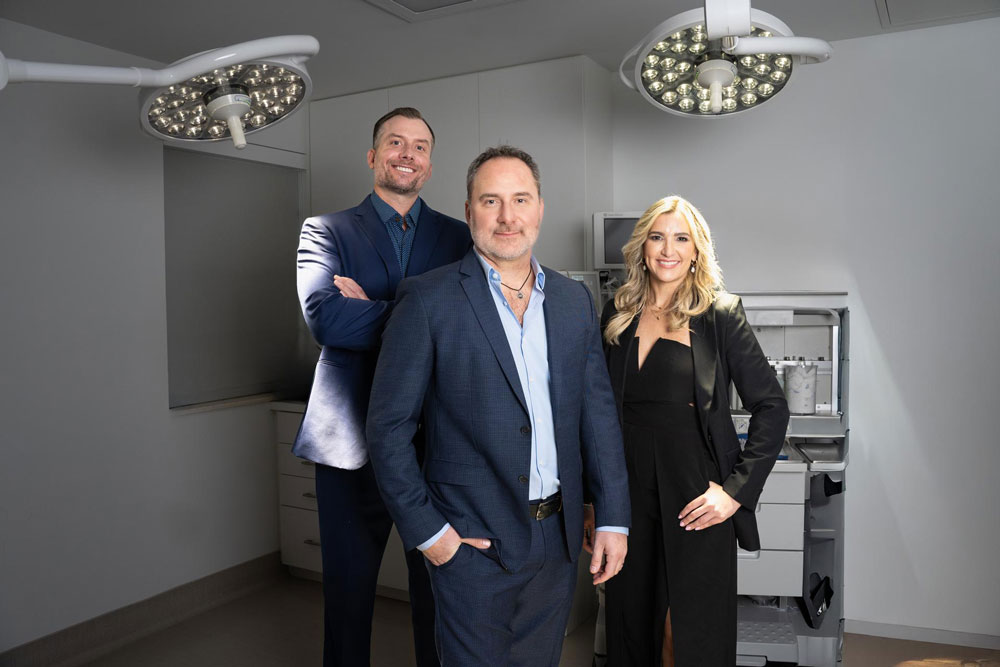Navigating the Emotional and Physical Rollercoaster After Plastic Surgery

There are many emotional and physical changes a patient goes through before and after cosmetic or plastic surgery. It’s been coined a “rollercoaster” because the ups and downs patients experience can feel like a ride at an amusement park. From excitement and fear to regret, anger, anxiety, and depression, patients may experience a myriad of emotions; and they are all normal. The body also goes through many changes from the day of surgery to months – and sometimes years – after the procedure.
Pre-Surgery Excitement
Once the patient has a surgery date and has made all arrangements there’s usually a feeling of excitement. During this time, patients are looking at before and after photos, engaging with their surgeon’s social media pages and romanticizing about how much better life, and clothes, will be after the surgery.
About two days before surgery the excitement turns into nervous excitement. Patients may have doubts about the surgery, results, and reactions from friends and family. This is normal, and many patients find that meditating, doing yoga, and sharing their feelings with others helps them through this stage. On the day of surgery, nervousness can overtake the excitement and patients may begin to worry about their safety during surgery. The comment most heard on the surgery table is patients telling the surgeon to make sure they come home safely to their families.
Post-Surgery Emotional and Physical Experience
The “Downs” Immediately After Surgery
Post-surgery, patients may feel like they’ve been hit by a Mack truck. While patients are typically in pain, there is a feeling of relief that they made it through the surgery and excitement that they’ve passed a milestone. Patients may experience various degrees of physical pain and may feel lightheaded, nauseous, and lose their appetite.
The “Downs” During Initial Recovery
The excitement immediately after surgery may wear off a week after the procedure and some patients may begin to feel sad or depressed. They may start to think and say that they will “never do this again!” This phase can last three to six weeks and sometimes longer depending on the kind of procedure and how the patient heals. If there are any complications, this phase can last up to three months.
During the post-surgery “downs”, patients may feel “yucky” because of the drains, swelling, fluids, nausea, and inflammation. They may also begin to nitpick the results of the surgery; breast augmentation patients may think their breasts are too high and Brazilian Butt Lift (BBL) patients may think the results don’t look like the image they had in their mind. In some cases, patients become angry because they don’t see the desired results right away – they want to look good NOW.
The “Ups” Three Months After Surgery
Three months after surgery patients begin to feel more normal as they get back into their routine, go back to work and the swelling goes down. Patients may start feeling excited as they try on clothing, buy new clothes and post photos of their results. They can begin to see how far they have come and while they may have previously thought “never again” about an additional surgery, it is common for them to be thinking about round two or another procedure.
The “Downs” Six Months After Surgery
Sometimes when the excitement wears down, there are patients who experience serious post-surgery depression or anxiety likened to post-partum depression. Patients that may have had mental issues prior to surgery should discuss the surgery with their mental health practitioner beforehand. Patients who have previous concerns may need to talk to their surgeon and mental health practitioner after surgery if they are concerned about a deep depression or serious bouts of anxiety. Patients with ADHD may need to stop taking medications, such as Ritalin 30 days before surgery because they can cause cardiac issues while on the table. If you are experiencing anxiety or depression after surgery for the first time, please note that plastic surgeons are not able to prescribe medications for these conditions, but they can work with mental health practitioners to ensure patients are receiving the best care.
All the emotional and physical phases of the “rollercoaster” are normal and are to be expected before and after surgery. The surgery experience can be different from patient to patient, and while some may have certain feelings and physical symptoms, others may not. It is important for surgeons to discuss this cycle with patients because studies show that if patients are aware ahead of time, they can spend more time focused on recovery. Embracing the emotions and trusting the physical process that comes with surgery gives patients a better recovery experience. Following pre- and post-operative instructions from your surgeon are also important in navigating the surgical process.
Further
Reading
Media
PURE Plastic Surgery and our incredible team of surgeons have been recognized in magazines and news publications all around the world.







Join our 500,000+ Followers
Loyalty Membership
Rewards Program































